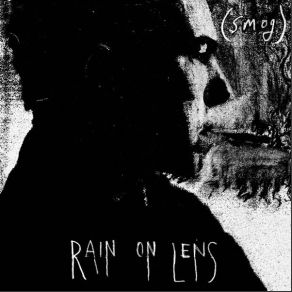Rain On Lens
Download links and information about Rain On Lens by Smog. This album was released in 2001 and it belongs to Rock, Indie Rock, Alternative genres. It contains 10 tracks with total duration of 38:19 minutes.

|
|
|---|---|
| Artist: | Smog |
| Release date: | 2001 |
| Genre: | Rock, Indie Rock, Alternative |
| Tracks: | 10 |
| Duration: | 38:19 |
| Buy it NOW at: | |
| Buy on iTunes $9.90 | |
| Buy on Amazon $8.99 | |
| Buy on Songswave €1.08 | |
Tracks
[Edit]| No. | Title | Length |
|---|---|---|
| 1. | Rain On Lens 1 | 1:27 |
| 2. | Song | 4:57 |
| 3. | Natural Decline | 4:18 |
| 4. | Keep Some Steady Friends Around | 4:28 |
| 5. | Dirty Pants | 4:31 |
| 6. | Lazy Rain | 5:27 |
| 7. | Short Drive | 3:27 |
| 8. | Live As If Someone Is Always Watching You | 4:05 |
| 9. | Rain On Lens 2 | 1:31 |
| 10. | Revanchism | 4:08 |
Details
[Edit]The prolific Bill Callahan is building a new reputation on subtle unpredictability. This time out, he's altered the name of his one-manned band to the parenthetical notation (Smog), presumably in an attempt to downplay the attention that has been paid to his persona, attention that is a byproduct of what's truly important — his music. While the motivation and/or sincerity behind such a name change is debatable, the character of the songs that comprise Rain on Lens, though they are again different from virtually all of Callahan's previous performances, is never in question. And "different" doesn't mean that your hero opted to croon the entire album in falsetto; he still spins twisted aphoristic yarns in his unmistakable deadpan baritone. Rather, this album is a study in repetition and rhythm, the same kinds that Callahan first toyed with on songs like "Bloodflow" and "Justice Aversion" from Dongs of Sevotion. On Rain on Lens, the songs relentlessly repeat themselves, rarely actually building momentum, increasing in volume, or reaching any kind of climax; instead, the band builds a groove that works its way inside the head of the listener, driving and thumping, eventually inducing a quiet trance. The album is framed by two nearly identical vignettes, "Rain on Lens, Pts. 1 & 2," that not only succinctly sum up the ethics of work, but also encapsulate the depravity, depression, and elation that the album and the artist exist between.